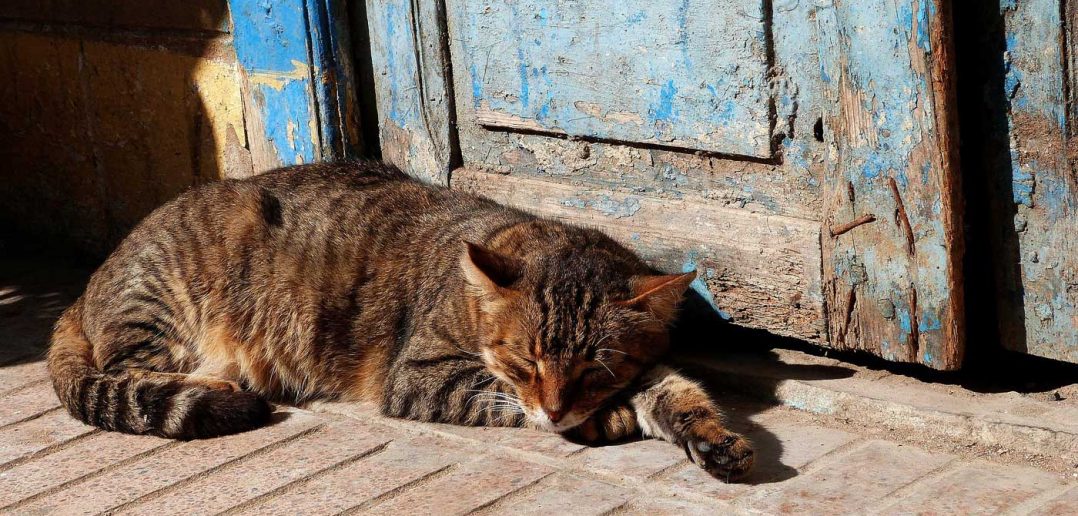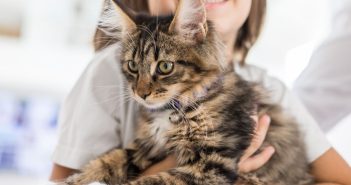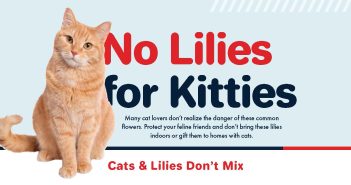When I was little I had a Tabby cat named Clarissa, short for Clarissa Explains it All, a name taken from a popular TV show at the time. Clarissa was as independent as cats come – attached to the hunt of prey and adventure of our country land — showing few loyalties to the years I nurtured her as a kitten, except for the occasional good scratch and the dinner bell. Still, Clarissa was a loved pet, and when we moved, we were determined she’d join us.
I’m not sure that moving a mile away made matters easier or harder for Clarissa, but our efforts to move her kept failing. We’d find her, wearing herself bone-thin, prancing in her old domain. I, being the faithful cat owner that I was, read somewhere that if I rubbed butter all over her paws she’d never leave our new home. It worked. Maybe it was the butter, maybe our persistence, or maybe the more feral nature of our new home’s yard, but Clarissa never ran away again.
Thanking about the butter on my cats paws reminded me of the many myths cat owners both hear and tell – some not finding them myths at all, but proven truths, while others knowing scientific reasons that debunk the mysteries. Perhaps being as curious as my fellow feline friend, I decided to decode the myths.
Eight Cat Myths Answered
- Butter on a cats paws will stop them from running away from the new home you moved them to – FALSE
Contrary to my own experience, Cat World claims butter has not been proven to help cats during a move. Instead, cat owners should keep their cats inside for 2-3 weeks following the move, letting them outside only in an enclosed area. Once owners do let them out, the cat should always have a microchip in case they try to return to their old home. - Cat’s purr because they are happy – FALSE
While it’s true that cats do purr in moments of appeared contentment, that is not the only time they purr, or the scientific reason behind their purring. According to Scientific American, cats even purr while under duress, and the reason for their purring – whether it be during positive or negative times – is related to their adaptation to conserve energy during long periods of rest and sleep, as well as that purring seems to help stimulate their muscles and bone without loosing a significant amount of energy. - Pregnant women shouldn’t own cats – FALSE
Though cats can spread toxoplasmosis, an infection caused by a parasite carried in cat stool, this parasite is more commonly passed in eating undercooked meat or gardening than interacting with ones pet cat. The Centers for Disease Control and Prevention says that while one can have a pet cat while pregnant, it’s important to have a non-pregnant member of the family change the litter box daily, that your cat is not a newly adopted stray, your cat doesn’t eat raw meat, and your cat is primarily indoors. - Cats hate water – TRUE
Most cats mix as well with water as oil does. However, Jacque Lynn Schultz, an advisor for Companion Animal Programs, says cats can enjoy pawing dripping water, and one cat breed — the Turkish Van — is the exception for loving all aspects water-related. - A cat can always land on its feet – TRUE
Though some cats may not land on their feet, this myth is overwhelmingly true in most cases. ABC News did an article featuring this very topic, and Ann Hohenhaus, a veterinarian at New York’s Animal Medical Center, said cats generally land on their feet due to their flexibility. When they fall they use their bodies almost like parachutes, and right before they land they arch their backs as a way to reduce impact. Huhenhaus adds that in her experience it seems cats actually do better falling larger distances, a statement she supports by a cat she once examined who survived a 42-story fall. - Cats have nine lives – FALSE
While the high-aptitude cats have to land on their feet may make it seem like they have nine lives, cats can be hit by a car, are susceptible to diseases, and are not immune to the risks and hazards of the world. In fact, a cat expert, Dr. Mark, explains on the website Found Animals, that in order to give your cat the most out of the one life they have, cats should be vaccinated, have proper flea medication, be spayed/neutered, and be both loved and played with. - Cats love cows milk – FALSE
Cat World says that though some cats may love the taste of cow’s milk, many cats are lactose intolerant. If you want to give your cat milk, choose a special “cat’s milk” formula that can be purchased at certain pet stores, giving your cat a safe and healthy milk to drink. - Black cats bring bad luck – TRUE
While this is not true in a superstitious scene, according to a study in 2000, of the 321 patients who reported in the Annals of Allergy, Asthma and Immunology, those who had a dark-colored cat were four times more likely to suffer moderate to severe allergies. A finding that leads researchers to speculate that darker cats produce more allergens in both their skin and saliva.
While these myths have been proven beyond one individual’s experience, it’s not to say your experience or your cat isn’t an exception. After all, Clarissa seemed to like the butter on her paws.





2 Comments
I am a devoted cat owner, as I am taking care of three lovely indoor babies and six more outdoor ones and am always curious learn new things about them! Of course, I also heard some of these myths and I am amazed to hear some of them debunked, as the one about cats’ purring as of expression of contentment:) I knew that cats hate water, but have to give them bath from time to time, right? But you are really making me rethink all of the things I though I knew about my cats,as giving them milk as a treat:) Wow, I learnt so many things, thanks so much!!
Cats are too complex, give me a simpler pet any day. The fact that there are so many myths involving cats directly identifies their complexities.